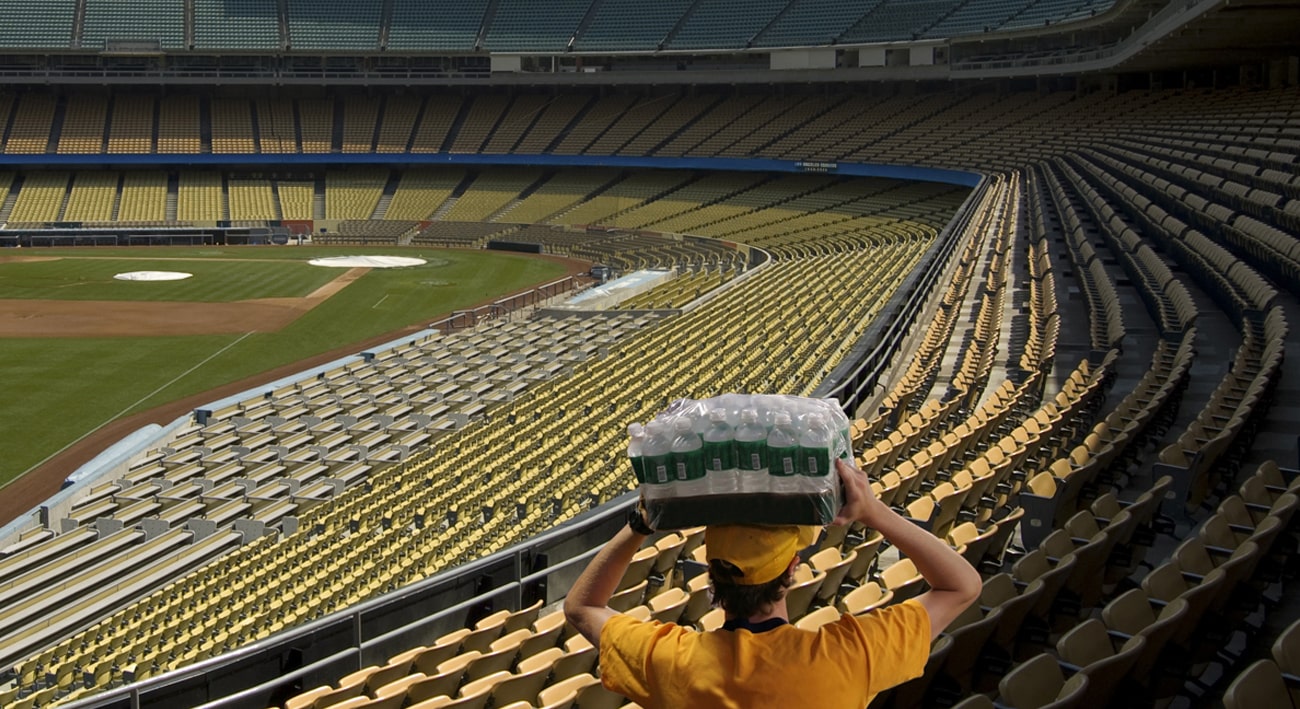
Living in a State of Sportslessness
Sportslessness—is that even a word?
Well, it surely wasn’t two weeks ago. For the record, I’m not an avid sports spectator, except the Super Bowl (mostly for the commercials), assorted golf tournaments and an occasional mandatory stint during March Madness and college football season. Oh yes, the World Cup draws me in, too.
But I am clearly in the minority. Research shows that up to 64 percent of the U.S. population watches spectator sports.
Now that’s changed, shockingly. For the first time in decades, the $160-billion sports world has gone dark.1
Whatever sport you most enjoy watching—from the NBA ($4.5 billion in media fees, plus ticket sales and displaced employees) to the NCAA ($1.1 billion last year which includes $1 billion from events, television and marketing rights) to tennis and golf (many more billions in TV revenues, gates, and so forth), the staggering amount of lost revenue this year will depend on how long our global shutdown lasts.
But, that’s merely the financial side of the equation—and arguably the tip of the iceberg.
Many sports fans have some kind of ritual associated with watching a game. Perhaps they wear their allegiance and hope to bring their team luck (Robert De Niro in Silver Linings Playbook, love that movie). Or they organize tailgate parties in parking lots, or head to a local sports bar with friends. For many, it’s the highlight of the week—sometimes the year.
Fans’ emotions rise and fall with the performance of their team—or at least they did. For now, anyway— and for the foreseeable future.
Being sportslessness is not catastrophic in the way that people are suffering in hospitals today—but for the rest of us, it is still disappointing, to say the least. Every morning, when I walk into my office, there’s a conversation about this team, that player or a new contract. I confess to be lost, but the energy is palpable.
Even working remotely from home right now, the online meeting drifts to no sports. For many, the lack of sporting events will intensify that other, less toxic fever—cabin fever. Seriously, now much Netflix can you binge on—and the news, well, that’s another story.
Of course, and for the obvious reasons, I had completely supported the cancellation of all sports events. Then the other day, I was reading an interesting editorial in The Economist.2 Back in the good ol’ days, the ancient Romans understood the need for distraction during difficult times as well. The chariot races and even the gladiators provided a necessary diversion from the political and economic problems of the day.
During WWII—and as depicted in the popular movie “A League of Their Own”—the All-American Girls Baseball League thrilled fans for a dozen seasons in cities and towns throughout the Midwest. Organized in 1943 by Philip K. Wrigley of chewing gum fame, the All-American Girls Softball League was established to fill ballparks left empty by young men drafted into the military.3
The proposed idea put on the table by the Economist article was that a number of elite athletes could be tested for the virus and then cocooned. After a quarantine period, they could play all-star games to keep citizens entertained, with audiences watching via the internet or TV.
Maybe we should consider that today. Granted, on the surface, there would be obstacles. The availability of testing, for one. Also, the interaction among athletes. However, if this furlough lasts beyond Easter, as most think, perhaps looking past these issues may not be a bad idea.
Taking it one step further, the wealthiest companies might also consider a little sporting experiment. Wouldn’t it be interesting to see a team from Facebook do battle with a team from Google in, say, curling?
Can you imagine the marketing potential!
1 The Financial Blow of the Coronavirus – NY Times, 3/14/2020 Matthew Futterman, Kevin Draper, Ken Belson and Alan Blinder
2 the Game’s the Thing- The Economist, 3/21/2020
3 A League of Their Own – WisconsinHistory.org/Record/Article/CS321
